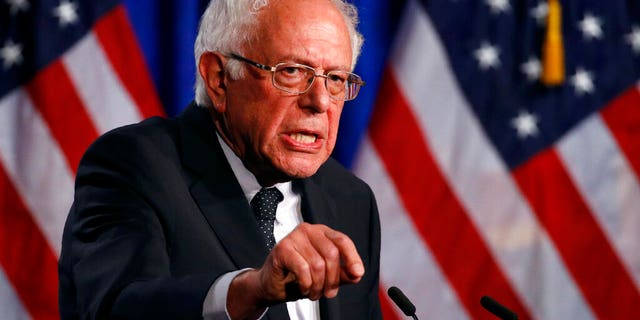WASHINGTON
(AP) — The Pentagon will present a broad range of military options to
President Donald Trump on Friday as he considers how to respond to what
administration officials say was an unprecedented Iranian attack on
Saudi Arabia’s oil industry.
In a White
House meeting, the Republican president will be presented with a list of
potential airstrike targets inside Iran, among other possible
responses, and he will be warned that military action against the
Islamic Republic could escalate into war, according to U.S. officials
familiar with the discussions who spoke on the condition of anonymity.
The
national security meeting will likely be the first opportunity for a
decision on how the U.S. should respond to the attack on a key Middle
East ally. Any decision may depend on what kind of evidence the U.S. and
Saudi investigators are able to provide proving that the cruise missile
and drone strike was launched by Iran, as a number of officials, including Secretary of State Mike Pompeo, have asserted.
Iran has denied involvement and warned the U.S. that any attack will spark an “all-out war” with immediate retaliation from Tehran.
Pompeo
and Vice President Mike Pence have condemned the attack on Saudi oil
facilities as “an act of war.” Pence said Trump will “review the facts,
and he’ll make a decision about next steps. But the American people can
be confident that the United States of America is going to defend our
interest in the region, and we’re going to stand with our allies.”
The
U.S. response could involve military, political and economic actions,
and the military options could range from no action at all to airstrikes
or less visible moves such as cyberattacks. One likely move would be
for the U.S. to provide additional military support to help Saudi Arabia
defend itself from attacks from the north, since most of its defenses
have focused on threats from Houthis in Yemen to the south.
Gen.
Joseph Dunford, chairman of the Joint Chiefs of Staff, emphasized to a
small number of journalists traveling with him Monday that the question
of whether the U.S. responds is a “political judgment” and not for the
military.
“It is my job to provide military options to the president should he decide to respond with military force,” Dunford said.
Trump
will want “a full range of options,” he said. “In the Middle East, of
course, we have military forces there and we do a lot of planning and we
have a lot of options.”
U.S.
Rep. Elissa Slotkin, D-Mich., said in an interview Thursday that if
Trump “chooses an option that involves a significant military strike on
Iran that, given the current climate between the U.S. and Iran, there is
a possibility that it could escalate into a medium to large-scale war, I
believe the president should come to Congress.”
Slotkin,
a former top Middle East policy adviser for the Pentagon, said she
hopes Trump considers a broad range of options, including the most basic
choice, which would be to place more forces and defensive military
equipment in and around Saudi Arabia to help increase security.
A
forensic team from U.S. Central Command is pouring over evidence from
cruise missile and drone debris, but the Pentagon said the assessment is
not finished. Officials are trying to determine if they can get
navigational information from the debris that could provide hard
evidence that the strikes came from Iran.
Pentagon
spokesman Jonathan Hoffman said Thursday that the U.S. has a high level
of confidence that officials will be able to accurately determine
exactly who launched the attacks last weekend.
U.S.
officials were unwilling to predict what kind of response Trump will
choose. In June, after Iran shot down an American surveillance drone,
Trump initially endorsed a retaliatory military strike then abruptly
called it off because he said it would have killed dozens of Iranians.
The decision underscores the president’s long-held reluctance to embroil
the country in another war in the Middle East.
Instead,
Trump opted to have U.S. military cyber forces carry out a strike
against military computer systems used by Iran’s Revolutionary Guard to
control rocket and missile launchers, according to U.S. officials.
The
Pentagon said the U.S. military is working with Saudi Arabia to find
ways to provide more protection for the northern part of the country.
Air
Force Col. Pat Ryder, spokesman for the Joint Chiefs of Staff, told
Pentagon reporters Wednesday that U.S. Central Command is talking with
the Saudis about ways to mitigate future attacks. He would not speculate
on what types of support could be provided.
Other
U.S. officials have said adding Patriot missile batteries and enhanced
radar systems could be options, but no decisions have been made.



















